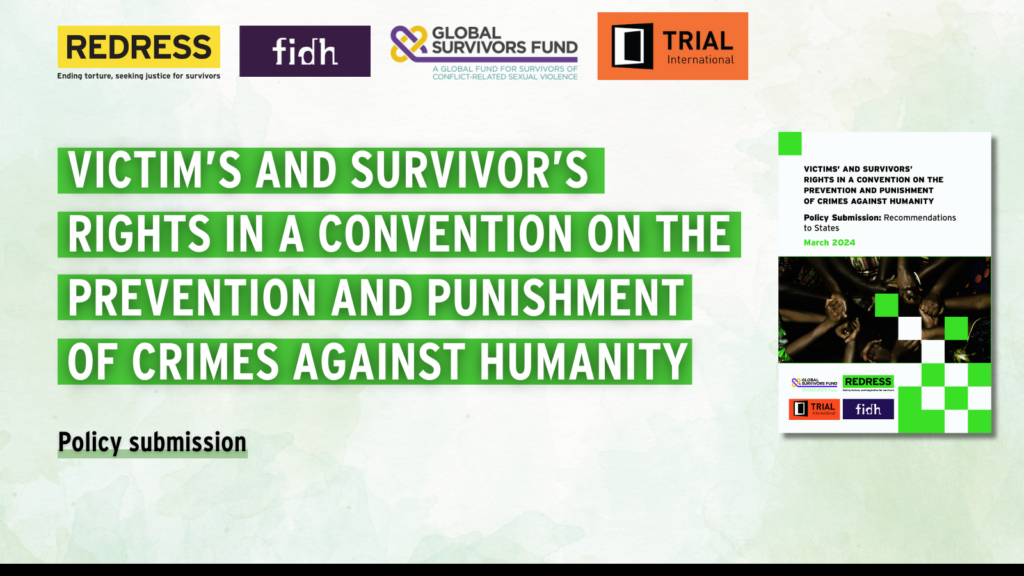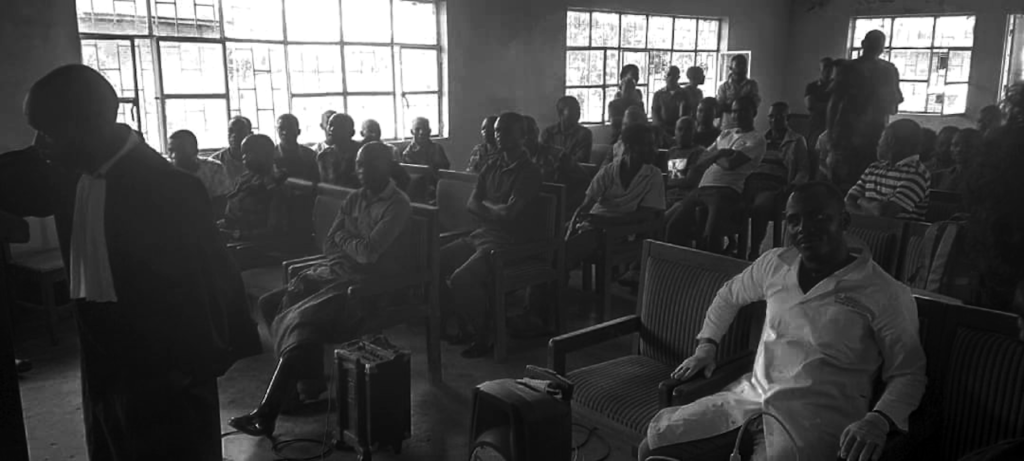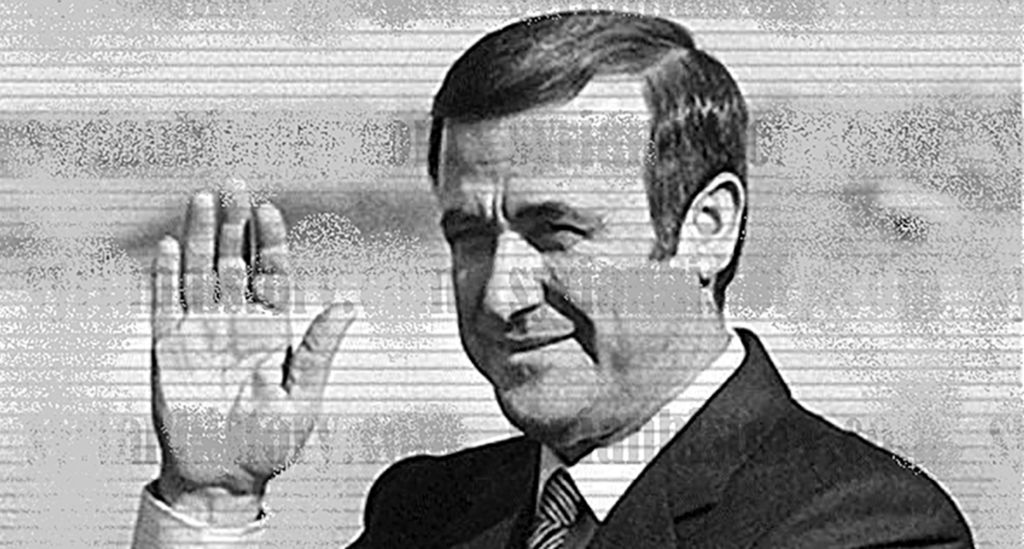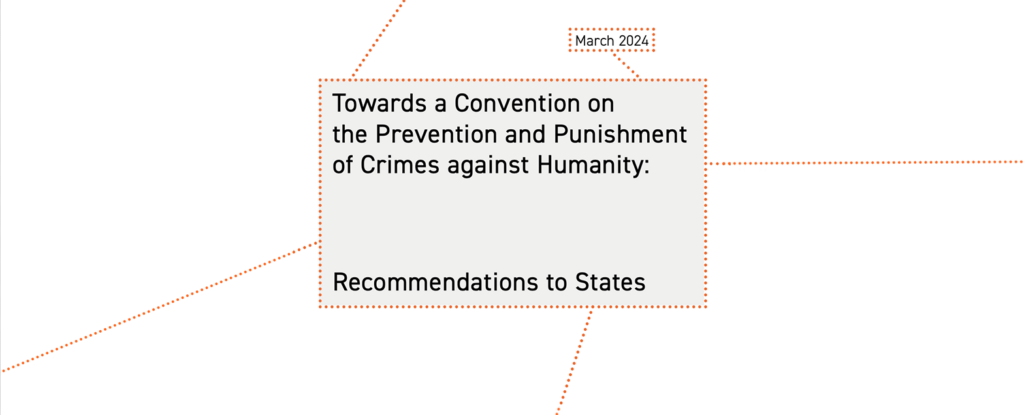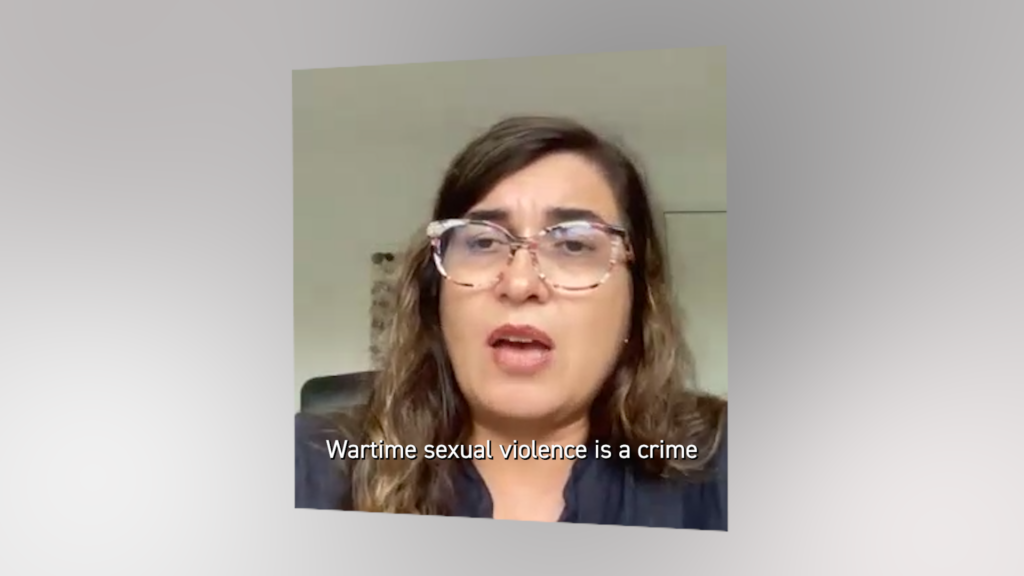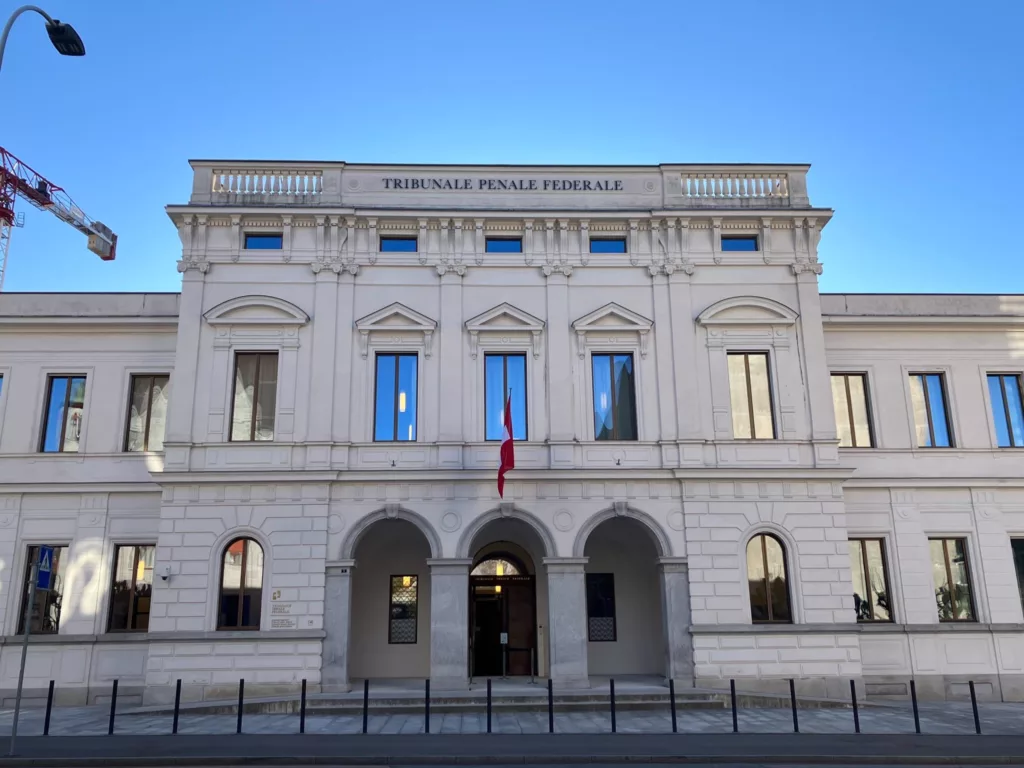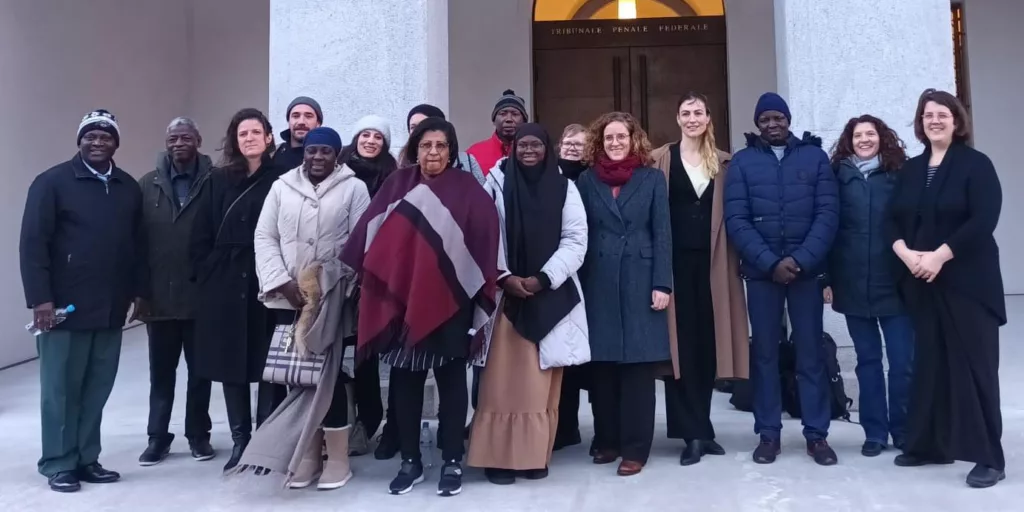Judicial reparations for the Mutarule massacre
After many months of silence, the verdict for the crimes committed in Mutarule has finally been made public. The massacre committed in 2014 against the village has been described as a crime against humanity and the victims will receive financial compensation.
Close to a hundred victims took part in the trial, including ninety-three who were represented by lawyers trained by TRIAL International. After tense hearings in August 2016, the South Kivu Military Court gave its verdict last week, acknowledging that crimes against humanity had been committed in Mutarule.
In spite of that, none of the three defendants have been convicted for crimes against humanity. One was acquitted. Another, Mr Sheria, the alleged leader of an armed group, was sentenced to 15 years in prison for illegal possession of war weapons – but not for his direct involvement in the massacre of 6 June, which according to the Court has not been proven. The third defendant was Major Kayumba, a representative of the Congolese army, who was sentenced to 10 years in prison for violation of orders.
Responsibility lies with the State
The Court did acknowledge, however, that Major Kayumba’s inaction paved the way for the massacre: “Kayumba’s poor or failed leadership, coordination, foresight and anticipation were at the root of the massacre in Mutarule”. As a result, the Congolese State was required to pay compensation to all the victims. Depending on the damage suffered, the reparations range from USD 3,000 to 60,000.
TRIAL International welcomes this decision, which must now be followed by effective action. The victims are also expecting concrete measures. “The reparations are a recognition of our rights and dignity”, explains one victim who wishes to remain anonymous. “The verdict is positive, but it will be of no use to us if it is not implemented”.
Impunity remains?
The Mutarule verdict is unusual in that it acknowledges the commission of crimes against humanity but does not prosecute the authors of these crimes. If the Court does not condemn anyone for these atrocious acts, it suggests that those responsible remain unpunished.
“The State must equip itself with the resources to identify and pursue those responsible, who must answer for their crimes,” concludes Daniele Perissi, head of TRIAL’s DRC programme.
On 12 June 2018, the appeal hearings were initiated in Bukavu before the Congolese Military High Court.
Find out more about the Mutarule massacre

